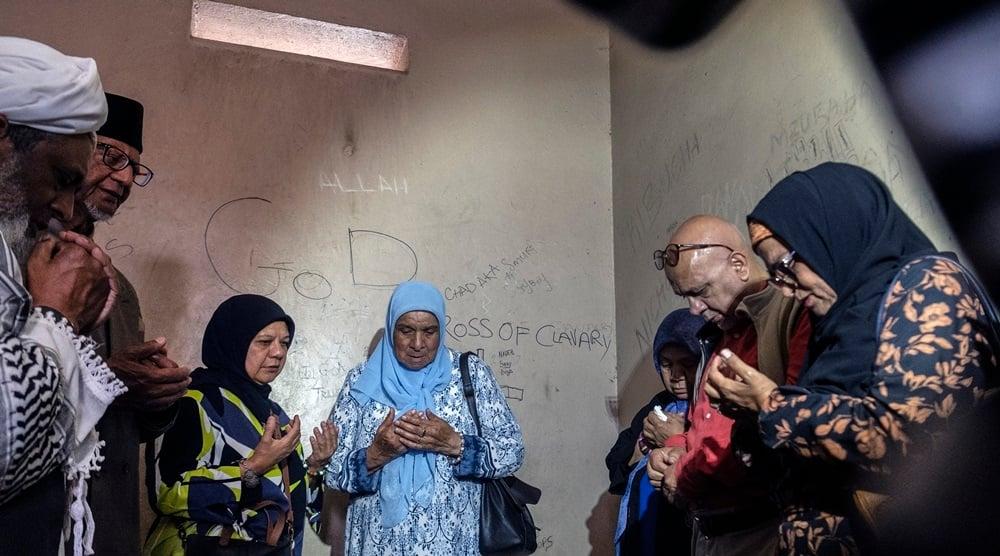Africa-Press – South-Africa. The final arguments in the reopened inquest into the death in detention of Muslim cleric Imam Abdullah Haron during apartheid will begin in the Western Cape High Court on Monday.
Haron died in detention on 27 September 1969 in a small, dank cell at the Maitland police station after he was arrested and detained for 123 days without a court appearance or access to legal representation.
At the time, police said he had fallen down steps at Cape Town Central police station on 19 September, and had injured himself so severely that he did not recover.
This was a common refrain by the apartheid security forces when they were asked to explain injuries on a prisoner in detention without trial.
The first inquest in 1970 found that he had died due to narrowing of the arteries.
His family never accepted this, and sent representations to the National Director of Public Prosecutions to ask that the inquest be reopened.
The Foundation for Human Rights, which is assisting the family, said it was encouraged by the reopening of the inquest into Ahmed Timol’s death.
A former police officer was supposed to stand trial for his death eventually, but he died before it could start.
In May 2022, Justice Minister Ronald Lamola asked Western Cape High Court Judge Daniel Thulare to preside over a reopened inquest.
During the reopened inquest last year, private pathologist Steven Naidoo said Haron was so severely injured that it seemed the pathologist who examined his body wilfully ignored vital clues as to what had truly happened to the imam. At best, his work was shabby.
Haron was arrested on 28 May 1969, and accused of terrorism.
The closest he came to any kind of judicial oversight was a quick passing visit from a magistrate.
The imam was arrested when a police officer blended into the long line of people waiting to talk to him at his home.
The “terrorism” he was alleged to have committed seemed to revolve around money he had taken to the families of political detainees and people under house arrest so that they could buy food, as he became increasingly involved in the growing opposition to apartheid.
Through this, Haron came into contact with PAC leaders, who asked him to deliver food and money to people in Nyanga and Gugulethu.
As a salesperson, he did not need the pass that was required to move freely in the two suburbs.
From there, he became connected to political networks, and spoke out against apartheid in his sermons and public addresses. He also travelled abroad to help keep networks going.
He founded the Claremont Muslim Youth Association in 1958, which began publishing a monthly newsletter called the Islamic Mirror in 1959.
He kept close contact with activists like now retired Constitutional Court Justice Albie Sachs, and PAC co-founder Robert Sobukwe. He also collected funds in support of the Coloured People’s Congress, which was banned in 1960.
On the day he was found dead, he was in a foetal position, regarded as an indication of not only the pain he was in, but a sign of the psychological distress he suffered. He was 45.
An inquest in 1970 concluded that although he had 27 bruises on his body, congested kidneys and intestines, as well as cracked rib cartilage, the injuries were most likely caused while rounding the landing for the final flight of steps at Cape Town Central police station.
‘Slipped on steps’ finding
While he was detained, sweets manufacturer Wilson Rowntree fired him in a letter given to him in detention.
Later, a family member’s interpretation of Islamic inheritance law after his death, led to Haron’s wife Galiema and his children also losing the home they had worked so hard for.
The family has asked that the original “slipped on the steps” finding with no blame to anyone, be overturned as the cause of death; that the police involved in Haron’s death be posthumously found guilty of intentional torture and murder; and that the medical professionals who were supposed to have looked after him – the pathologist, and the inquest magistrate JSP Kuhn – be posthumously stripped of their qualifications.
In the course of the inquest, Thulare led a delegation to inspect the Maitland police cell and the various flights of stairs at Cape Town Central police station.
It was an emotional pilgrimage by the family and anti-apartheid activists who had also been detained there. The activists told Thulare and Haron’s family what it was like being kept there.
The inquest was also a reunion of sorts for anti-apartheid activists, many of whom have not enjoyed the repeated public recognition and valorisation offered to more high-profile activists. Many went on to become MPs since the first democratically elected government was formed in 1994.
They testified about their experiences while being detained, and brutal treatment at the hands of one particular officer “Spyker van Wyk”.
The last known surviving policeman associated with Haron’s detention also testified. Johannes Burger said he fully expected everything to be “piled on him” even though he knew nothing of any torture. He said his job was merely to open and close Haron’s cell door.
The argument will be presented over two days from Monday, and judgment is expected to be reserved.
For More News And Analysis About South-Africa Follow Africa-Press






